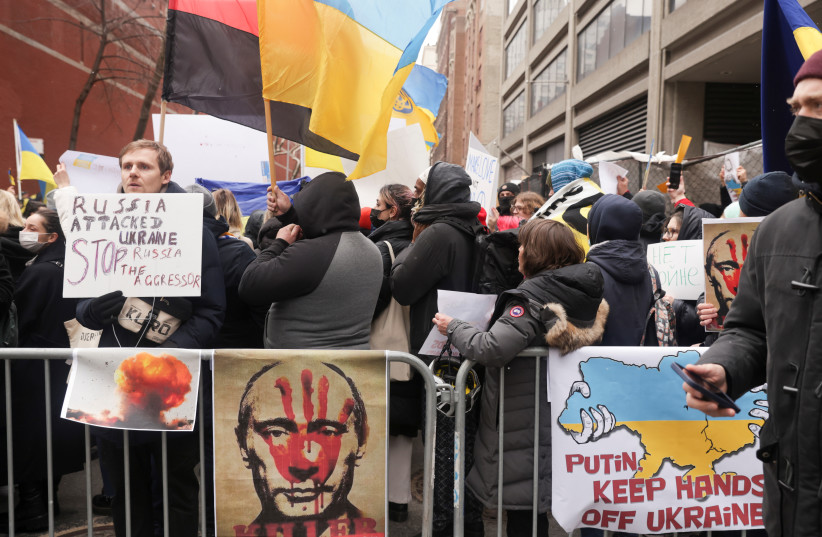While hate speech towards Arabs, ultra-Orthodox, LGBTQ+ people and other groups has decreased, hate speech in Israel against those with Russian heritage has increased three-fold since Russia’s invasion of Ukraine, the Berl Katznelson Foundation found in their annual “Hate Report,” released on Thursday.
The report, which analyzed over half a million social media engagements (posts, comments, etc.), found approximately 5.6 million offensive statements, slurs and calls for violence within Hebrew-language social media.
"Since the outbreak of the war in Ukraine, we have seen a sharp increase not only in justified and true criticism against the Russian regime that commits war crimes, but also, unfortunately, general and offensive expressions of hatred against Russians,” said Anat Rosiliou, Director of the Public Department at the Berel Katznelson Foundation and the Hate Report Project.
According to the research, social media engagements that include hate speech against Russians jumped by about 270% – from 18,153 engagements that included hate speech last year to 67,129 this year – while hate speech against asylum seekers, who have also become more prominently featured in public discourse since the start of the Russia-Ukraine War, increased by 25%.
When a significant number of Russian Jews immigrate and will immigrate to the State of Israel, it is especially important to avoid such expressions and prejudices and to open the door to them
Anat Rosiliou, Director of the Public Department at the Berel Katznelson Foundation
“This connection that does not distinguish between the regime is dangerous for the people. When a significant number of Russian Jews immigrate and will immigrate to the State of Israel, it is especially important to avoid such expressions and prejudices and to open the door to them," Rosiliou declared.

Hate speech in Israeli social media
On the other hand, hate speech against Ethiopians decreased by 48%, while hate speech against people who identify as politically right-wing decreased by 39%, left-wing by 35%, LGBTQ by 27% and Arabs by roughly 9%.
Despite the decrease, the group that has faced the most discrimination on social media so far this year is the Arab population with 255,000 expressions of hate (35% of all hate speech against sectors/groups). In second place is the ultra-Orthodox population with about 85,000 expressions of hate (11% of all hate speech against groups), followed by leftists with 76,000 mentions of hate speech (10% of the hate speech against groups), and with Russians in fourth place with 67,000 mentions of hate speech (9% of the hate speech against groups).
The report also identified the month of March as especially tense – 750,000 social media engagements that included hate speech were posted in March – while September was far tamer, with just 254,000 such mentions.
The Berl Katznelson Foundation noted that in the month of May – which followed Ramadan in 2022 – there was a jump in hate speech against Arab citizens with about 49,000 engagements – compared to a monthly average of about 22,000.
Every year before Tisha B'Av, the Berel Katznelson Foundation publishes the Hate Report in cooperation with the research company Vigo. The 2022 report was the seventh iteration of the annual report.
